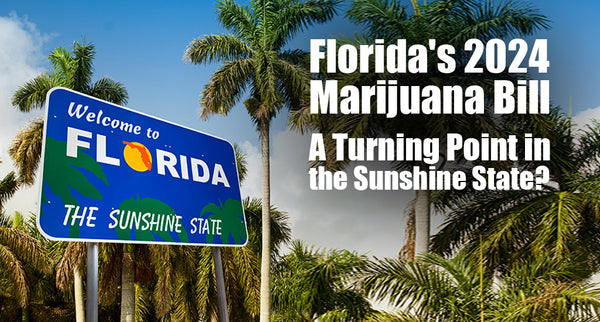
Federalsburg 'Maryland' Mayor: Cannabis Legislation Threatens Family Hemp Enterprise
Federalsburg Mayor Kimberly Abner is sounding the alarm over the unintended consequences of Maryland's cannabis legalization, which is casting a shadow of uncertainty over her family's business and prompting them to consider selling their Eastern Shore hemp farm. Abner, along with her husband Ken and brother-in-law, have been the driving force behind a small-scale hemp venture specializing in crafting gummy and vape products for the past three years. However, the ramifications of the bill that greenlit adult-use recreational cannabis are now pushing them to the brink of exiting the market.
During a recent cannabis symposium organized by the Maryland Municipal League, Mayor Abner directly addressed her concerns to House Economic Matters Chair Del. C.T. Wilson (D-Charles). She expressed her deep apprehensions about the law's impact on her business, emphasizing her role as the representative face of a business that is facing imminent closure. She pointed out that her Maryland hemp farm has been legally producing and selling federally approved hemp products, yet due to the new legislation, her stores are urgently requesting the removal of these items from their shelves.
Originally aiming to participate in Maryland's medical cannabis sector, Abner and her husband were thwarted in their efforts to secure the coveted licenses. Faced with this setback, they pivoted to the hemp market as a viable alternative that aligned with their goals. In an interview, Mayor Abner explained that they chose this path due to its legal status and the ability to cultivate and sell hemp products within Maryland's regulatory framework.
Their business, Cannamedus, has been operating for approximately three years, delivering delta-8 and delta-9 gummies, vape products, tinctures, and topical solutions to smoke shops and retailers on the Eastern Shore. Hemp, much like cannabis, harbors a diverse array of over 100 cannabinoids, some of which can induce intoxicating effects. Delta-9, the primary psychoactive compound in cannabis, is also present in hemp. Previously, products containing delta-9 were permissible in Maryland as long as they adhered to a THC content below 0.3%. Another cannabinoid, delta-8, has also been noted by the Federal Drug Administration for its potential intoxicating effects.
The regulatory paradigm shifted in 2023 when hemp products came under the same rules and requirements as cannabis. This sudden change has left the Abner farm idle this year, with the family considering selling it due to the adverse effects of the legislation.
Del. C.T. Wilson, the driving force behind the 2023 legislation that inaugurated legal recreational cannabis sales, encountered opposition from Maryland's hemp industry. This opposition materialized in a lawsuit aimed at challenging elements of the law that are causing hardships for entrepreneurs like Mayor Abner. While Mayor Abner is not a direct participant in the lawsuit, her business is aligned with the association representing plaintiffs.
Mayor Abner contends that her legitimate business is being unfairly targeted, even though it operates with products that conform to federal standards. Del. Wilson counters that while the products might be federally legal, state authorities have a responsibility to ensure consumer safety, test products, and regulate intoxicants. These contentions are expected to be settled through the ongoing lawsuit.
Mayor Abner reiterates that her products undergo rigorous testing, backed by substantive reports. The new legislation has also introduced changes to Maryland's hemp industry, including lowered THC content limits for hemp products compared to federal standards. To continue selling in Maryland, hemp growers must now secure either a cannabis grower or processor license. The state is poised to issue its first round of licenses, with a focus on promoting minority involvement in the industry, by year-end.
Meanwhile, agents from the state's Alcohol, Tobacco and Cannabis Commission are proactively monitoring stores and removing products from shelves. Del. Wilson underscores the state's commitment to eliminating unregulated CBD products sold by questionable smoke shops, labeling them as "fake weed." The state's mission remains centered on ensuring citizens' safety and regulating the products they consume.
Leave a comment
Comments will be approved before showing up.



